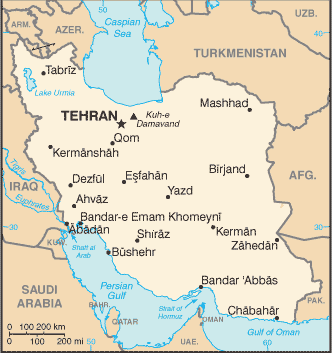With an apparent eye toward continuing the Pentagon’s seemingly endless naval buildup off the coast of Iran, officials and analysts are fretting over what they see as Iran’s growing “retaliation capability,” saying it would put those US ships in the Persian Gulf at risk if they started attacking Iran.
 Unlike America’s enormous fleet of huge warships, cost and practicality has led to a very different sort of navy in Iran, one which is planning to rely almost entirely on small speedboats and a quick deployment of sea mines to fend off the invading leviathans.
Unlike America’s enormous fleet of huge warships, cost and practicality has led to a very different sort of navy in Iran, one which is planning to rely almost entirely on small speedboats and a quick deployment of sea mines to fend off the invading leviathans.
Incredibly, officials and analysts suggest this strategy may actually work, as Iran’s large number of tiny ships can use “swarming” tactics in defending the Iranian coast, and that huge US ships, mostly built with an eye toward fighting other huge ships, would be at a marked disadvantage trying to contend with so many smaller targets.
“The outcome would never be in doubt when you’re dealing with the most powerful military in the world,” insists former Pentagon adviser Michael Eisenstadt, but the idea that Iran could fend off a naval invasion, even if only for a few hours, has Pentagon officials convinced of the need to throw more ships at the region.
Whether this is just the Pentagon trying to cash-in on a newly perceived “threat,” the practical matter is that the addition of even more ships will add to the serious upkeep costs of leaving a naval attack force looming off the coast of a nation on the other side of the planet. Entirely unconsidered by US officials is the wisdom of keeping such a costly force there at all. Since Iran’s tiny ships are meant for very short range defense (i.e. their own coast) the US could avoid the Iranian naval threat entirely by not attacking Iran.


